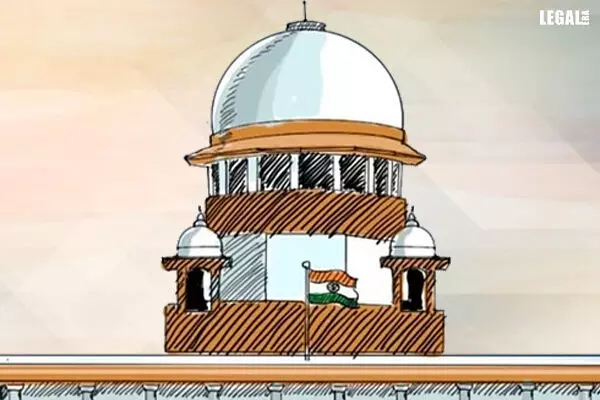- Home
- News
- Articles+
- Aerospace
- Artificial Intelligence
- Agriculture
- Alternate Dispute Resolution
- Arbitration & Mediation
- Banking and Finance
- Bankruptcy
- Book Review
- Bribery & Corruption
- Commercial Litigation
- Competition Law
- Conference Reports
- Consumer Products
- Contract
- Corporate Governance
- Corporate Law
- Covid-19
- Cryptocurrency
- Cybersecurity
- Data Protection
- Defence
- Digital Economy
- E-commerce
- Employment Law
- Energy and Natural Resources
- Entertainment and Sports Law
- Environmental Law
- Environmental, Social, and Governance
- Foreign Direct Investment
- Food and Beverage
- Gaming
- Health Care
- IBC Diaries
- In Focus
- Inclusion & Diversity
- Insurance Law
- Intellectual Property
- International Law
- IP & Tech Era
- Know the Law
- Labour Laws
- Law & Policy and Regulation
- Litigation
- Litigation Funding
- Manufacturing
- Mergers & Acquisitions
- NFTs
- Privacy
- Private Equity
- Project Finance
- Real Estate
- Risk and Compliance
- Student Corner
- Take On Board
- Tax
- Technology Media and Telecom
- Tributes
- Viewpoint
- Zoom In
- Law Firms
- In-House
- Rankings
- E-Magazine
- Legal Era TV
- Events
- Middle East
- Africa
- News
- Articles
- Aerospace
- Artificial Intelligence
- Agriculture
- Alternate Dispute Resolution
- Arbitration & Mediation
- Banking and Finance
- Bankruptcy
- Book Review
- Bribery & Corruption
- Commercial Litigation
- Competition Law
- Conference Reports
- Consumer Products
- Contract
- Corporate Governance
- Corporate Law
- Covid-19
- Cryptocurrency
- Cybersecurity
- Data Protection
- Defence
- Digital Economy
- E-commerce
- Employment Law
- Energy and Natural Resources
- Entertainment and Sports Law
- Environmental Law
- Environmental, Social, and Governance
- Foreign Direct Investment
- Food and Beverage
- Gaming
- Health Care
- IBC Diaries
- In Focus
- Inclusion & Diversity
- Insurance Law
- Intellectual Property
- International Law
- IP & Tech Era
- Know the Law
- Labour Laws
- Law & Policy and Regulation
- Litigation
- Litigation Funding
- Manufacturing
- Mergers & Acquisitions
- NFTs
- Privacy
- Private Equity
- Project Finance
- Real Estate
- Risk and Compliance
- Student Corner
- Take On Board
- Tax
- Technology Media and Telecom
- Tributes
- Viewpoint
- Zoom In
- Law Firms
- In-House
- Rankings
- E-Magazine
- Legal Era TV
- Events
- Middle East
- Africa
Reinstated employee not automatically entitled to back wages: Supreme Court

Reinstated employee not automatically entitled to back wages: Supreme Court
The person would have to prove that he/she was not gainfully employed during the relevant period
The Supreme Court has reiterated that an order to reinstate an employee back to service does not mean he would be automatically entitled to back wages.
In the Ramesh Chand vs Management of Delhi Transport Corporation case, a bench of Justice Abhay S Oka and Justice Rajesh Bindal stated that such relief would depend on a case-to-case basis.
While dealing with an appeal by a retired bus conductor, the Court explained that the employee would have to prove that he was not gainfully employed during the relevant period to claim back wages.
In 1996, the bus conductor was terminated from service by the Delhi Transport Corporation (DTC) for allegedly not issuing tickets to two passengers despite collecting Rs.4 for the same in 1992.
In 2009, he was reinstated by a Labour Court. However, the Labour Court also ruled that he was not entitled to back wages when he was not working for DTC.
The Delhi High Court had also upheld the Labour Court ruling. Aggrieved by it, in 2016, the conductor filed an appeal before the Supreme Court. He retired from service in 2020.
The Supreme Court granted him partial relief after noting that the appellant could not find alternative employment for about a year after his termination in 1996.
The Court thus modified the Labour Court award to include back wages of Rs.3 lakh, keeping in mind his current and past salary. If not paid within two months, it would include an annual interest of 9 percent from 2009.
While advocates P George Giri and Jasmine Kurian Giri appeared for the appellant, the respondent was represented by advocate Monika Gusain.



